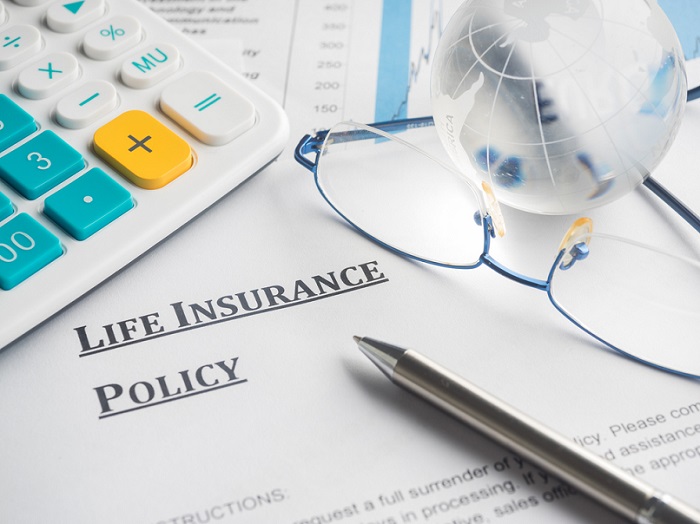As we go through life, we encounter unexpected events that can have a significant impact on our finances and overall well-being. While we may not be able to predict these events, we can prepare for them by having insurance coverage. Insurance is an essential component of financial planning, providing peace of mind and protection from unforeseen circumstances. In this article, we’ll explore the importance of insurance and how it can safeguard your future.
What is Insurance?

Insurance is a contract between an individual or entity and an insurance company. It provides financial protection against specific risks in exchange for regular payments, called premiums. The type of insurance you need will depend on your individual circumstances and the risks you are exposed to. Common types of insurance include health, life, auto, homeowners, and disability insurance.
Why is Insurance Important?

There are several reasons why insurance is essential. First and foremost, insurance protects you financially from unexpected events. For example, if you were involved in a car accident and didn’t have auto insurance, you could be responsible for paying thousands of dollars in damages. With insurance, however, you can rest assured that your insurer will cover the costs, up to the limits of your policy.
Insurance also provides peace of mind. Knowing that you’re protected from unexpected events can reduce stress and allow you to focus on other areas of your life. Additionally, having insurance can help you meet legal requirements. For instance, most states require drivers to have auto insurance, and many lenders require homeowners to have homeowners insurance.
Types of Insurance
There are many different types of insurance available, each designed to protect against specific risks. Some of the most common types of insurance include:
Health Insurance
Health insurance provides coverage for medical expenses, including doctor visits, hospitalization, and prescription drugs. It can be obtained through private insurance companies or through government programs like Medicare and Medicaid.
Life Insurance
Life insurance provides a death benefit to the policyholder’s beneficiaries in the event of their death. It can help cover funeral expenses, pay off outstanding debts, and provide financial support for loved ones.
Auto Insurance
Auto insurance provides coverage for damages or injuries caused by an accident involving your car. It can also provide protection against theft and other types of damage.
Homeowners Insurance
Homeowners insurance provides coverage for your home and personal property in the event of damage or loss due to events like fire, theft, or weather-related incidents.
Disability Insurance
Disability insurance provides income replacement if you become unable to work due to an illness or injury.
How to Choose the Right Insurance
Choosing the right insurance can be overwhelming, especially if you don’t know what you need. Here are some tips to help you choose the right insurance:
- Identify the risks you’re exposed to: Before you can choose the right insurance, you need to identify the risks you’re exposed to. For instance, if you own a car, you’ll need auto insurance to protect against accidents and theft.
- Determine how much coverage you need: Once you’ve identified the risks you’re exposed to, you need to determine how much coverage you need. Consider factors like your assets, liabilities, and potential future expenses.
- Shop around: Don’t just settle for the first insurance policy you come across. Shop around and compare coverage options and prices from different insurers.
- Read the fine print: Before you sign on the dotted line, make sure you read the fine print of your insurance policy. Pay attention to exclusions, deductibles, and limits.
FAQs
- Is insurance really necessary? Yes, insurance is necessary. Without insurance, you could be financially responsible for unexpected events like car accidents, illnesses, or natural disasters. Insurance provides protection and peace of mind.
- How much insurance do I need? The amount of insurance you need will depend on your individual circumstances and the risks you’re exposed to. Consider factors like your assets, liabilities, and potential future expenses when determining how much coverage you need.
- Can I change my insurance policy? Yes, you can change your insurance policy. If you feel like you’re overpaying for coverage or need more protection, you can switch insurers or adjust your coverage options.
- How often should I review my insurance policies? You should review your insurance policies at least once a year, or whenever there are significant changes in your life circumstances.
- What happens if I don’t pay my premiums? If you don’t pay your insurance premiums, your coverage can lapse, leaving you unprotected against unexpected events. Additionally, non-payment of insurance premiums can negatively impact your credit score.
Conclusion
Insurance is an essential component of financial planning. It provides protection and peace of mind, allowing you to focus on other areas of your life. By understanding the different types of insurance available and choosing the right policies for your individual circumstances, you can safeguard your future and protect yourself financially against unexpected eventsthat may arise. Remember to shop around and compare coverage options and prices from different insurers, read the fine print of your insurance policy carefully before signing on the dotted line, and review your policies regularly to ensure you’re adequately covered. With the right insurance in place, you can rest assured that you’re prepared for whatever life may throw your way.
